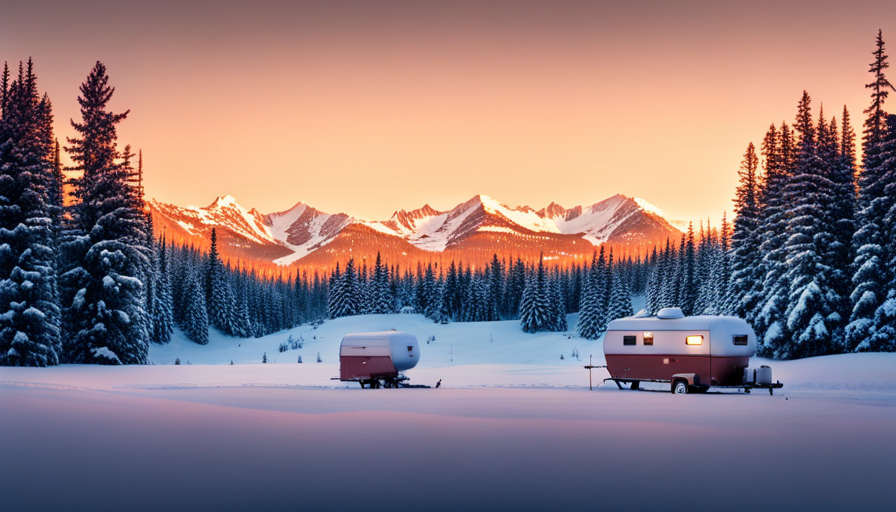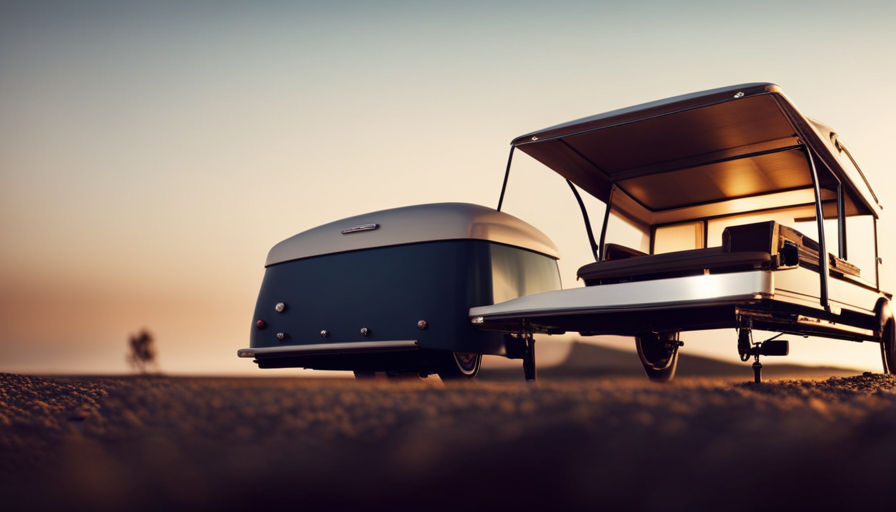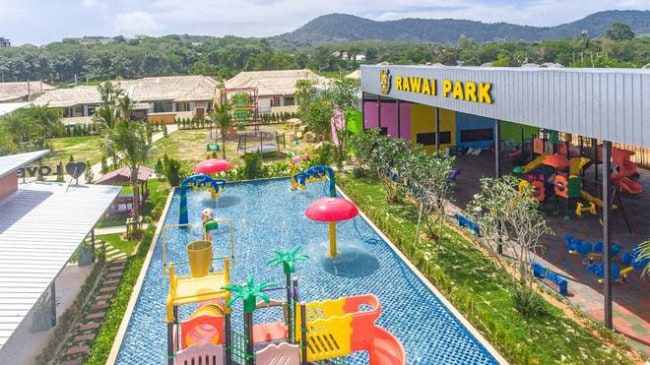I understand your thoughts – how long can a propane tank truly endure in a camper? It is a valid question, given that propane is essential for heating, cooking, and operating appliances in your RV.
Well, let me put your worries to rest. In this article, I will provide you with all the information you need to understand the factors affecting the lifespan of a propane tank in a camper, estimate propane usage, and maintain optimal levels.
I will also delve into the different propane tank sizes available for campers, as well as offer tips on extending the lifespan of your tank. Additionally, I will explore alternative energy sources for campers and provide you with essential safety and emergency preparedness tips.
Lastly, I will discuss propane tank refilling and exchange options, along with answers to frequently asked questions. So, buckle up and get ready to become a propane pro!
Key Takeaways
- The lifespan of a propane tank in a camper is influenced by factors such as tank size, number of appliances, weather conditions, insulation, and appliance maintenance.
- Larger tanks can hold more propane and last longer between refills, providing a longer-lasting fuel source.
- Propane consumption is higher during colder months for heating purposes, so it is important to consider average consumption per appliance, measured in BTUs.
- Conserving propane can be achieved by using energy-efficient appliances, insulating the camper, and minimizing usage when possible.
Factors Affecting Propane Tank Lifespan in a Camper
You won’t believe how much longer your propane tank will last in your camper when you consider these factors!
When it comes to estimating propane usage in RVs, there are several factors that can affect the lifespan of your propane tank. One of the main factors is the size of your propane tank. Larger tanks can hold more propane, which means they can last longer between refills.
Additionally, the number of appliances you have running on propane in your camper will also affect how quickly you go through your propane. The more appliances you have, such as a stove, oven, water heater, and refrigerator, the more propane you will consume.
The weather conditions also play a role in propane consumption. During colder months, when you need to heat your camper, you will use more propane compared to warmer months when you only need it for cooking.
Other factors that can affect propane consumption in campers include the insulation of your camper and how well you maintain your appliances. By considering these factors, you can estimate how long your propane tank will last in your camper.
Transitioning into the next section about estimating propane usage in a camper, it’s important to understand the factors that influence propane consumption.
Estimating Propane Usage in a Camper
When estimating propane usage in a camper, it’s important to consider the average propane consumption per appliance. Each appliance, like the stove, refrigerator, and heater, has its own propane consumption rate that can be measured in BTUs (British Thermal Units).
Additionally, calculating propane usage for different activities, like cooking, heating, and using hot water, can help determine the overall propane needs for a camping trip.
Lastly, I can offer tips for conserving propane during camping trips. These include using energy-efficient appliances, insulating the camper, and minimizing propane usage by utilizing alternative heating methods when possible.
Average Propane Consumption per Appliance
Throughout your camping trip, your appliances will devour propane like a ravenous beast, leaving you with the sweet scent of possibility and the warmth of a crackling fire. To properly estimate propane consumption, it is important to understand the average propane consumption per appliance. The table below provides an overview of the average propane usage for common camping appliances:
| Appliance | Average Propane Consumption (BTU/hour) |
|---|---|
| Stove | 7,000 – 15,000 |
| Oven | 10,000 – 18,000 |
| Water Heater | 8,000 – 12,000 |
| Refrigerator | 1,500 – 3,000 |
| Furnace | 20,000 – 40,000 |
By considering the propane tank capacity and the average consumption of each appliance, you can estimate how long a propane tank will last in your camper. In the subsequent section, we will delve into calculating propane usage for different activities.
Calculating Propane Usage for Different Activities
To accurately estimate the duration of propane supply for various activities, it’s crucial to calculate the usage based on the average consumption of each camping appliance.
When it comes to cooking, propane usage can vary depending on the type of stove used and the frequency of meals. On average, a propane stove can consume around 0.2 to 0.4 pounds of propane per hour.
For heating purposes, propane usage can also vary based on factors such as the outside temperature and the size of the camper. A propane furnace can consume around 1 to 3 pounds of propane per hour.
Estimating propane usage for different activities is crucial to ensure you have enough supply for your camping trip.
In the next section, we’ll discuss tips for conserving propane during camping trips.
Tips for Conserving Propane during Camping Trips
Make the most of your camping experience by following these tips to conserve propane and ensure a worry-free trip. Proper propane tank maintenance is essential for maximizing its lifespan. Inspect the tank regularly for any signs of damage or leaks.
Keep the tank clean and free from dirt and debris that can interfere with its performance. Additionally, always store the tank in an upright position to prevent any leaks.
When using propane appliances, be mindful of their energy consumption. Turn off appliances when not in use and avoid leaving them on standby mode. Consider using energy-efficient appliances to further conserve propane.
Safety is paramount when dealing with propane tanks. Always follow safety precautions such as keeping the tank away from flames or heat sources and ensuring proper ventilation when using propane indoors.
By implementing these tips, you can conserve propane and have a safe camping experience.
Transitioning to understanding propane tank sizes for campers, it’s important to know the different options available to meet your camping needs.
Understanding Propane Tank Sizes for Campers
When it comes to propane tanks for campers, there are several common sizes available. These sizes range from small 1-pound tanks to larger 20-pound tanks. Choosing the right tank size for your needs is crucial in order to ensure you have enough propane for your camping trip.
If you find that your current tank size is not meeting your needs, you may consider upgrading or downsizing your propane tank to better suit your camping requirements.
Common Propane Tank Sizes for Campers
Imagine yourself standing outside your camper, gazing at the row of common propane tank sizes, each one ready to fuel your adventures on the open road. To help you understand the options before you, here are three key details about common propane tank sizes for campers:
-
Propane Tank Weight: The weight of a common camper propane tank can range from 20 to 40 pounds, depending on the size. This is important to consider when it comes to installation and transportation.
-
Propane Tank Installation: Installing a propane tank in your camper requires careful planning and adherence to safety regulations. It involves properly securing the tank, connecting it to the RV’s propane system, and ensuring proper ventilation.
-
Choosing the Right Tank Size for Your Needs: Now that you’re familiar with common propane tank sizes and the installation process, it’s time to choose the right size for your needs. This involves considering factors such as the length of your trips, the number of appliances you’ll be using, and the availability of propane refilling stations along your route.
Transitioning into the subsequent section about choosing the right tank size for your needs, it’s crucial to find the perfect balance between capacity and practicality.
Choosing the Right Tank Size for Your Needs
As I stand outside my camper, eyeing the selection of propane tank sizes, I picture myself finding the perfect match to fuel my adventures on the open road. When it comes to propane tank size considerations, there are a few factors to keep in mind.
The most common tank sizes for campers range from 20 to 40 pounds. A smaller tank, like a 20-pound, is more portable and easier to handle, but it may not last as long as a larger tank. On the other hand, a larger tank, such as a 40-pound, provides a longer-lasting fuel source but can be bulkier and heavier to transport.
It’s important to weigh the pros and cons of different tank sizes based on your specific needs and preferences. With the right tank size, you can ensure a sufficient fuel supply for your camping trips.
Transitioning into the subsequent section about upgrading or downsizing your propane tank, it’s worth exploring the options available to optimize your propane usage.
Upgrading or Downsizing your Propane Tank
To optimize your propane usage, consider whether upgrading or downsizing your tank would be the best choice for you. When it comes to upgrading options, you have a few choices. You could opt for a larger tank capacity to extend the time between refills. This would be beneficial if you frequently use your camper for long trips or if you have multiple appliances that rely on propane.
On the other hand, downsizing considerations may be necessary if you find that you have excess propane left over after each trip. This could be due to a change in your usage patterns or if you no longer require as much propane as before. It’s important to evaluate your propane needs and make the appropriate adjustments to maximize efficiency. By choosing the right tank size, you can ensure that you have enough propane without wasting any.
As we move on to the next section about maintaining and monitoring propane levels in your camper, it’s crucial to understand how these levels can impact your overall propane usage.
Maintaining and Monitoring Propane Levels in Your Camper
Monitoring propane levels in your camper can be a nerve-wracking task, especially when you’re not sure how long your propane tank will actually last. To ease your worries, there are propane tank monitoring systems available that can accurately measure the level of propane in your tank. These systems use sensors and gauges to provide real-time data on the propane levels, allowing you to plan your refills accordingly.
Additionally, proper propane tank maintenance is crucial to ensure its longevity. Regularly inspecting for leaks, rust, or damage, and addressing any issues promptly, will help extend the lifespan of your tank.
In addition to monitoring and maintaining your propane tank, it’s important to be aware of a few tips to maximize its usage. Firstly, avoid overfilling the tank, as it can lead to leaks and safety hazards. Secondly, keep the tank upright and secure during travel to prevent damage. Lastly, be mindful of the weather conditions, as extreme temperatures can affect the pressure and efficiency of the propane.
By monitoring your propane levels and following these maintenance tips, you can ensure that your propane tank lasts as long as possible.
In the next section, we will discuss some strategies for extending the lifespan of your propane tank without compromising its performance.
Extending the Lifespan of Your Propane Tank
By taking a few simple steps, you can significantly increase the lifespan of your propane tank and ensure it serves you well for many adventures to come. Here are some tips for extending the lifespan of your propane tank and maximizing propane usage:
-
Regularly inspect and maintain your propane tank: Check for any signs of damage or corrosion on the tank’s exterior. Clean the tank regularly to prevent buildup of dirt and debris, which can lead to rust and damage.
-
Store your propane tank properly: Keep your tank in a well-ventilated area, away from direct sunlight and extreme temperatures. Store it upright and secure to prevent any accidental damage.
-
Use propane efficiently: Be mindful of your propane consumption and avoid unnecessary wastage. Use energy-efficient appliances and consider investing in a propane level monitor to keep track of your usage.
-
Schedule professional inspections: Have your propane tank inspected by a qualified technician at least once a year. They can ensure that all components are in good working condition and identify any potential issues before they become major problems.
By following these guidelines, you can extend the lifespan of your propane tank and maximize its usage. However, it’s important to remember that safety precautions and propane tank regulations should always be followed.
Safety Precautions and Propane Tank Regulations
Ensuring the safety of your outdoor adventures and abiding by propane regulations is crucial for a worry-free and enjoyable experience. When it comes to propane tank maintenance, proper storage of propane tanks is essential. By following the recommended guidelines, you can extend the lifespan of your propane tank and prevent accidents or mishaps. Here are some important safety precautions and regulations to keep in mind:
-
Proper Storage: Always store propane tanks in an upright position, preferably outdoors in a well-ventilated area. Avoid storing them in enclosed spaces such as garages or basements.
-
Keep Away from Heat Sources: Propane tanks should be kept away from heat sources such as direct sunlight, open flames, or hot surfaces. Excessive heat can cause the pressure inside the tank to increase, leading to potential leaks or explosions.
-
Regular Inspections: Conduct regular inspections of your propane tank to check for any signs of damage or corrosion. Look for rust, dents, or worn-out valves. If you notice any issues, contact a qualified technician for repairs.
By following these safety precautions and adhering to propane tank regulations, you can ensure the longevity and safe usage of your propane tank. In the next section, we will explore alternative energy sources for campers, providing you with more options for your outdoor adventures.
(Note: Transition to the next section without using the word ‘step’)
Alternative Energy Sources for Campers
Are you ready to discover some awesome options for powering your outdoor adventures? When it comes to alternative energy sources for campers, solar power and wind energy are two excellent choices.
Solar power is a renewable energy source that harnesses the sun’s energy to generate electricity. By using solar panels, you can charge your camper’s batteries during the day and use that stored energy at night. It’s a clean and sustainable option that can greatly extend the lifespan of your propane tank.
Wind energy, on the other hand, utilizes the power of the wind to generate electricity. Installing a wind turbine on your camper can provide you with a constant source of energy, especially if you’re camping in a windy area. While wind turbines may not be as popular as solar panels for campers, they’re still a viable option for those seeking alternative energy sources.
By incorporating solar power and wind energy into your camper, you can reduce your reliance on propane tanks and extend their lifespan. Not only will this save you money in the long run, but it’ll also reduce your carbon footprint. So, if you’re looking for ways to power your outdoor adventures sustainably, consider investing in solar panels or a wind turbine.
Now that you’re aware of the benefits of alternative energy sources for campers, let’s move on to some important tips for propane tank safety and emergency preparedness.
Tips for Propane Tank Safety and Emergency Preparedness
When it comes to propane tank safety and emergency preparedness, there are several key points to keep in mind. First, it’s important to know how to detect and respond to a propane tank leak. This includes understanding the signs of a leak, such as a strong odor or hissing sound, and taking immediate action to shut off the gas supply and evacuate the area if necessary.
Second, familiarize yourself with the emergency shut-off procedures for your specific camper or RV, as this can vary depending on the model and manufacturer.
Finally, be well-versed in fire safety tips for campers, such as keeping flammable materials away from the propane tank, having a fire extinguisher on hand, and knowing how to properly extinguish a propane fire.
Propane Tank Leak Detection and Response
As you’re sitting around the campfire, the faint smell of propane fills the air, alerting you to a potential leak in your camper’s propane tank. Proper propane tank maintenance is crucial to ensure safe and efficient operation. Regularly inspect the tank for any signs of damage or wear, such as rust or dents. It is essential to check the connections and valves for any leaks using a solution of soapy water to detect potential issues. If a leak is detected, it’s important to take immediate action.
Shut off the propane supply at the main valve and open all windows and doors to ventilate the area. Remember not to use an open flame or electrical devices near the leaking propane. By promptly recognizing and responding to propane leaks, you can help prevent potentially dangerous situations.
Now, let’s move on to the next section about emergency shut-off procedures.
Emergency Shut-Off Procedures
If you ever find yourself in a potentially dangerous situation, knowing the proper emergency shut-off procedures is crucial. When it comes to propane tank maintenance, understanding how to safely shut off the gas supply can prevent accidents and potential disasters.
Here are some important emergency shut-off procedures to keep in mind:
- Locate the emergency shut-off valve, usually located on the propane tank itself.
- Turn the valve clockwise until it’s completely closed, cutting off the gas supply.
If the valve is inaccessible or damaged, use a propane gas emergency shut-off tool to shut off the flow.
Once the gas supply has been shut off, make sure to ventilate the area and call for professional assistance.
By following these emergency shut-off procedures, you can quickly and effectively handle any potential propane-related emergencies.
Now, let’s move on to fire safety tips for campers.
Fire Safety Tips for Campers
Campers can ensure their safety by following these helpful tips for preventing and managing fires while enjoying the great outdoors.
First and foremost, it’s crucial to have a well-maintained fire extinguisher readily available at all times. Regularly check its pressure and ensure it’s in proper working condition.
When it comes to campfires, always choose a safe location and clear the area of any flammable materials. Keep the fire small and under control, making sure to never leave it unattended. Extinguish the fire completely before going to bed or leaving the campsite. Remember to douse the flames with water, stir the ashes, and repeat until everything is cool to the touch.
By following these fire safety tips, campers can enjoy their outdoor adventures with peace of mind.
As we move on to discussing propane tank refilling and exchange options, it’s important to understand the importance of proper propane management.
Propane Tank Refilling and Exchange Options
When it comes to refilling or exchanging propane tanks, there are several options available to ensure you never run out of fuel while on your camping adventure. Here are some propane tank refilling and exchange options to consider:
-
Gas Stations: Many gas stations have propane refill stations where you can bring your empty tank and have it refilled on-site. This is a convenient option if you’re passing by a gas station during your trip.
-
Propane Suppliers: Propane suppliers specialize in providing propane and related services. They often have refill stations where you can bring your tank for a refill. They may also offer delivery services if you prefer not to transport the tank yourself.
-
Campgrounds: Some campgrounds have propane refill stations on-site for campers to use. This is a convenient option if you’re staying at a campground and don’t want to travel far to refill your tank.
-
Propane Tank Exchange Programs: Many hardware stores and supermarkets offer propane tank exchange programs. You bring your empty tank and exchange it for a full one at a set price. This is a quick and easy option if you’re in a hurry.
When it comes to propane tank maintenance and disposal, it’s important to follow proper safety guidelines. Now, let’s move on to frequently asked questions about propane tanks in campers.
Frequently Asked Questions about Propane Tanks in Campers
One common question people have about propane tanks in their camper is how frequently they need to be refilled or exchanged. Proper propane tank maintenance is essential to ensure a smooth camping experience. Understanding how to troubleshoot common propane tank issues will also save you from potential headaches on your camping trips.
To determine how long a propane tank will last in a camper, you need to consider several factors. The size of the tank, the number of appliances using propane, and how often you use those appliances will all affect the duration. Generally, a 20-pound propane tank can last about 10-14 days with moderate use. However, it’s always a good idea to monitor your propane usage closely and have a backup tank on hand.
Maintaining your propane tank is crucial for efficient operation. Regularly inspect the tank for any signs of damage or leaks, such as rust, dents, or hissing sounds. Ensure the tank is properly secured and the connections are tight. It’s also essential to keep the tank clean and free from debris to prevent clogs in the system.
If you encounter any issues with your propane tank, troubleshooting is key. Common problems include difficulty lighting the stove or heater, weak flame, or sudden flame outages. Check for blocked or dirty burner ports and clean them if necessary. If the problem persists, consult a professional for further assistance.
By following proper propane tank maintenance and troubleshooting common issues, you can have a worry-free camping experience and enjoy the convenience of propane-powered appliances in your camper.
Frequently Asked Questions
Can I use my propane tank for other appliances in my camper besides the stove?
Yes, you can definitely use your propane tank for other appliances in your camper besides the stove. Using propane for heating in a camper has its pros and cons.
On the positive side, propane is a highly efficient fuel that provides consistent and reliable heat. However, it does come with some drawbacks such as the need for regular refills and the potential for carbon monoxide buildup if not properly ventilated.
Overall, using propane for appliances in a camper offers convenience and versatility.
How do I properly dispose of an old propane tank from my camper?
When it comes to properly disposing of an old propane tank from your camper, there are specific methods to follow to ensure safety and minimize environmental impact. The first step is to empty the tank completely by using up the remaining propane.
Next, you should take the tank to a certified propane tank disposal facility. These facilities have the necessary equipment and knowledge to safely handle and dispose of the tanks, minimizing any potential harm to the environment.
Are there any specific regulations or restrictions on transporting propane tanks in a camper?
Transporting propane tanks in a camper is subject to regulations and restrictions to ensure safety on the road. Just like a delicate flower held gently in a hand, propane tanks must be secured firmly to prevent any accidents while traveling.
The Department of Transportation (DOT) requires tanks to be secured with straps or brackets, and they must be turned off and the valve cap tightly closed. Additionally, tanks should never be transported in an enclosed space, such as the living area of the camper, to avoid potential leaks or explosions.
Can I refill my propane tank at any gas station or do I need to go to a specific location?
You can refill your propane tank at certain gas stations that have propane filling stations. Not all gas stations offer this service, so it’s important to find a location that specifically provides propane refills.
When refilling your propane tank at a gas station, it’s crucial to follow propane tank safety tips for campers. This includes ensuring the tank is securely connected, avoiding overfilling, and inspecting for any leaks or damage before use.
What are the signs that my propane tank may need to be replaced or repaired?
One common sign that a propane tank may need to be replaced or repaired is a strong smell of gas. This could indicate a leak, which is a serious safety concern.
Other signs include rust or corrosion on the tank, difficulty lighting appliances, or inconsistent flame.
To maintain a propane tank in a camper, regularly inspect it for signs of damage, keep it clean and dry, and store it in a well-ventilated area.
Is the Lifespan of a Camper Battery Similar to the Lifespan of a Propane Tank in a Camper?
The camper battery lifespan and the lifespan of a propane tank in a camper can vary greatly. While a propane tank typically lasts for a few weeks to a few months, the lifespan of a camper battery depends on usage and maintenance. With regular care, a camper battery can last anywhere from 2 to 6 years, ensuring uninterrupted power supply during camping trips.
Conclusion
In conclusion, the lifespan of a propane tank in a camper can vary depending on several factors such as usage, maintenance, and size. By estimating your propane usage, monitoring tank levels, and practicing proper maintenance, you can extend the lifespan of your propane tank.
Additionally, considering alternative energy sources like solar panels or wind turbines can help reduce propane consumption. For example, John, an avid camper, installed solar panels on his camper and was able to significantly reduce his propane usage, increasing the lifespan of his tank and saving money in the long run.
Remember to always prioritize safety and have emergency preparedness measures in place. When it’s time to refill or exchange your propane tank, there are various options available including local propane suppliers and campgrounds.










